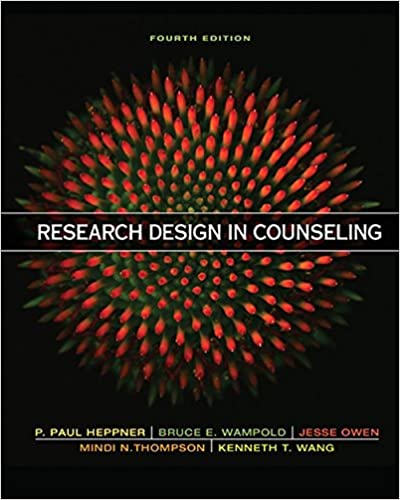Counseling Research Design 4e Complete Test Bank

Book Title:
Research Design in Counseling
Edition:
4th Edition
Author:
Puncky Paul Heppner, Bruce E. Wampold, Jesse Owen, Thompson, Kenneth T. WangDocument Sample
Test Bank
$24.99
Product Benefits
- Guaranteed to meet your expectations
- Instant access after purchase
- Microsoft Word format
- Files are available for preview
- 100% secure